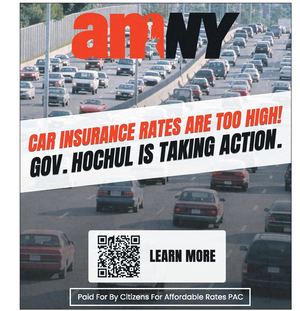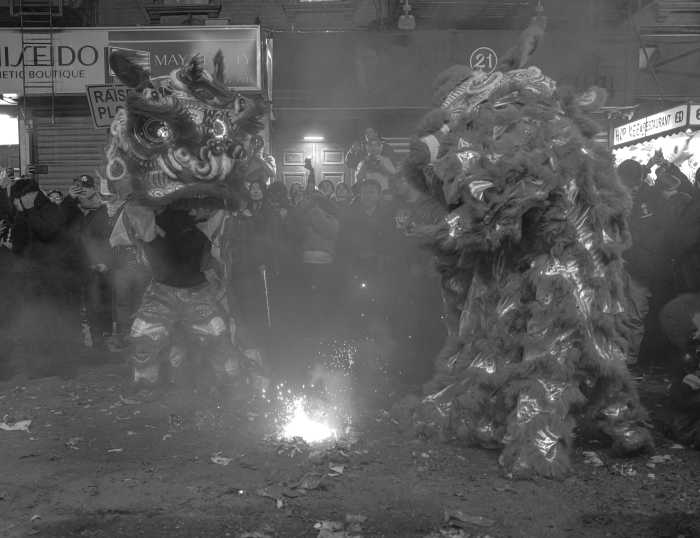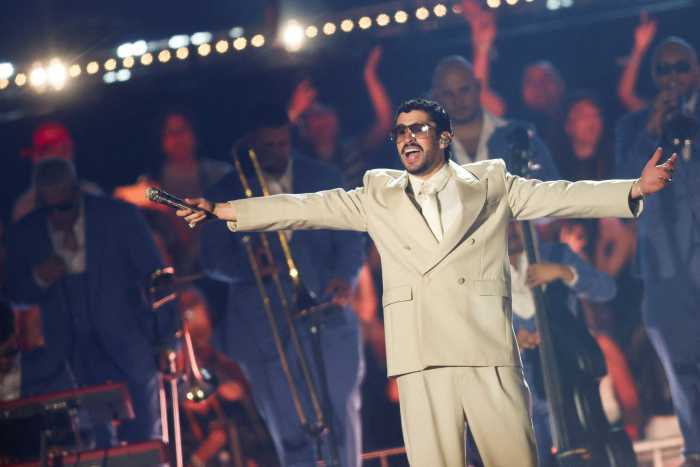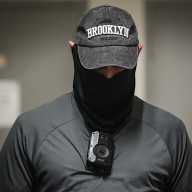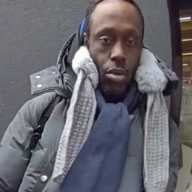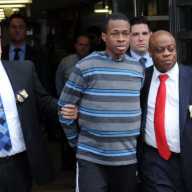By Laurie Mittelmann
A male prostitute came to mind when Bob Orzo saw the shattered door of his store, Hudson Bagels.
The baker and the prostitute, Oswaldo Suazo, 46, had been feuding for three weeks, ever since Suazo asked Orzo’s wife for a cigarette, followed her down the street and then — according to a police report — grabbed her butt. Oswaldo stood in front of their home each day and, according to police, once removed his pants outside of their store.
“She’s scared to leave the house at night without me,” Orzo said of his wife.
Orzo is part of an ongoing battle between some people who live in the West Village and some people who spend time there. From late night until early morning, Orzo and other residents say they have to dodge throngs of loud and scantily clad teenagers, crack dealers and high-heeled, transgender prostitutes. These visitors conduct business behind cars and in vestibules, the prostitutes often lingering at bus stops so that they can claim to be waiting for transit when approached by police on the lookout for loitering.
So far this year, the Sixth Precinct has made 170 arrests related to prostitution, 58 more than at the same point last year. On Tuesday, the precinct’s prostitution unit received 10 additional officers, an annual staffing up for the warm weather that brings more people onto the streets and an increase in crime. In a change, this summer, the officers, who all have at least six months experience patrolling in Midtown, are policing the streets of this “Times Square South” for three hours longer than the unit has ever done before — now finishing their tours at 8 a.m., instead of the previous 5 a.m.
Police say the longer tours are a necessary step to prevent the illegal activity, which continues even after the sun has risen. Most arrested prostitutes receive only community service, however, and are back on the streets the next night, said Michael Casey, the lieutenant in charge of the Sixth Precinct’s prostitution unit.
“I think the crime should carry a heavier penalty because of how it affects the quality of life for the people that live there,” Casey said. “It’s not a victimless crime.”
Other tactics the precinct is using include undercover officers posing as hookers — both as transgender and male — and seizing johns’ cars, which are then auctioned. Three johns’ cars already had been confiscated this month, said Casey, speaking a week and a half ago.
Suazo was arrested and is being held at the Manhattan Detention Center on White St. down by the courts. Unless he posts a $2,500 bail, he will remain locked up there until his Aug. 11 hearing on charges of forcible touching, sexual abuse and stalking.
David Poster, president of the Christopher Street Patrol, a neighborhood watch group formed in 1999, said that he once detained a prostitute from Queens who had been arrested 69 times, keeping the man from leaving until police came to make the arrest. Poster said he frequently sees 20 to 25 prostitutes per night on Greenwich, Washington and Hudson Sts. between Christopher and Perry Sts., a few more than he saw last year.
“The police make arrests and they keep coming back,” Poster said of the prostitutes. He cited recidivism as a serious problem, since current legislation doesn’t punish prostitutes enough to keep them from returning to their work.
“They think that because it’s the Village they can do whatever they want — and they do,” Poster said.
Neighborhood residents blast the area’s politicians — many of whom are gay or lesbian — for not calling for both a crackdown on the streetwalkers and for new legislation that would toughen penalties for committing the crime.
Maria Alvarado, a spokesperson for Council Speaker Christine Quinn, who represents the West Village, issued the following statement on Quinn’s behalf: “Our office works together with the N.Y.P.D. and community members on the issue of prostitution in the district, including any particular problem areas. When the office is contacted about the issue, we also work with individuals involved in that specific case or complaint. Prostitution is a crime that is governed by the New York State Penal Law, which can only be amended by the State Legislature.”
State Senator Thomas Duane, Assemblymember Deborah Glick and Assembly Speaker Sheldon Silver did not return phone calls regarding their thoughts on the West Village’s ongoing prostitution problem and the laws setting punishments for prostitutes.
Assemblymember Richard Gottfried, who represents Chelsea, said it didn’t seem like there was any pending legislation that might change the dynamic.
“Offhand, I’m not aware of any proposals that would do that,” he said, though offering, “but someone is always proposing something.”
Detective Tim Duffy, Sixth Precinct community affairs officer, said police are doing their job and busting the streetwalkers.
“The overall prostitution picture is that we are constantly enforcing prostitution in the precinct,” he said. “It’s been ongoing for many years,” he said of prostitution. “It was here before I came to the precinct 17 years ago.”
Asked about the problem of so-called “revolving-door justice,” Duffy said, “I can’t stop people from coming back to the neighborhood. I can’t say, ‘Don’t cross this line.’ It’s a free country. If somebody breaks the law, we will arrest them.”
However, many of the people who come to the Village to hang out in the nocturnal Christopher St. scene, on the edge of its demimonde, say that it’s simply the only safe place for them to express themselves.
Monicka Williams, 27, a male-to-female transgender who used to work in the neighborhood as a prostitute, visits Christopher St. to spend time with friends on the sidewalks and inside bars.
Williams told her story while standing by herself on Christopher St. at 3 a.m. on a recent Friday amid the glare of streetlights, the muggy heat and the nightly passing parade of people. She said she stopped having sex for money after a police officer told her that she was pretty and that she could do better things with her life. The positive comment encouraged Williams to study makeup and hair styling and she now works as a beautician in Brooklyn.
Her sleek, immaculately arranged hair and thick, elongated black lashes testify to her skills. In reference to prostitution, she said, “Thank God, I don’t have to do that now,” and blew a kiss to the sky as she knocked on a concrete wall. Williams said she felt pressured to sell her body because many employers discriminated against her for her sexuality, limiting her job options.
She believes that residents in the Village should expect the nightly transformation, which she expressed in an analogy to the nearby Theater District in Midtown: “What do you move on 42nd St. for if you don’t like the lights and the big crowd?” she asked.
“You go overseas and tell people that you’re from New York City and they ask you if you’ve ever been to Christopher St.,” Williams said. “Our gay population is known just like anything else — like the Statue of Liberty.”
Poster, of the neighborhood patrol, disagrees that the Village is a safe place for prostitutes, because, he said, they always face the risk of sexually transmitted diseases like H.I.V./AIDS. He believes that the area’s prostitution problem has become so endemic that residents have given up hope and are not even bothering to report it.
Solomon Muhammed, 37, homeless since 1993, mops floors at the 24-hour deli across the street from Orzo’s bagel store and at a pizzeria on the other corner. He said that every night he sees the prostitutes gathering on the sidewalk.
“There’s no cleanliness in the business,” he said of the hookers. “No purity. I like to clean things, but I don’t talk to them because I don’t want to start drama.”
Last July, in an effort to reduce crime, Community Board 2 approved a proposal to prohibit parking from 7 p.m. to 7 a.m., Thursday through Sunday, on the block of Christopher St. between Hudson and Greenwich Sts.
“There are less gangs of people now,” said Ian Dutton, vice chairperson of the community board’s Traffic and Transportation Committee. “It feels like a less threatening atmosphere.”
The idea was that having fewer parked cars behind which people could conceal themselves would help curb illegal activities.
But Orzo views these measures as flawed. When a police officer is parked in a car at one corner, more prostitutes can always be found on other blocks, he noted.
“They just moved the problem around,” Orzo said. “Now those people do their business somewhere else.”
Prostitutes are still flipping their hair and blowing kisses at passing cars when Orzo leaves his home at 4 a.m. to walk the few blocks to work to start boiling and baking the 1,200 bagels he sells each day. On a recent morning, he stood inside the vestibule of his West Village apartment building, bathed in yellow light from a motion sensor installed to keep trespassers away from the front door. He looked out to the street and pointed to the people that he calls “regulars,” then nodded toward the building’s railing.
“They like this railing for turning tricks,” he said.
Orzo could be anyone heading out to the job. He walked quickly, with his right hand in his pants pocket and his left arm swinging. But at Charles St., a driver in a white car with a New Jersey license plate rolled down the window to curse him, shouting “F— you!” while pulling away from a stop sign.
Thoroughly nonplussed, Orzo turned around to explain the aggressive behavior.
“He knows me,” Orzo said.
